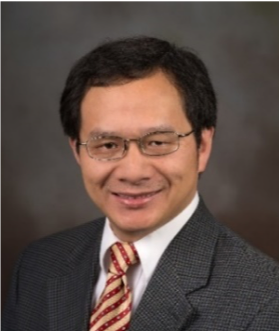
Control Seminar
Control co-Design: Challenges and Opportunities for Ocean Wave Energy Conversion
This event is free and open to the publicAdd to Google Calendar

Abstract: The United Nations declared 2021-2030 as the “Decade of Ocean Science for Sustainable Development”. The oceans contain vast but untapped renewable energy and hold great potential for climate mitigation. The technical harvestable resource from ocean wave energy along the US coastline is 34% of the total electricity generated in the country, and the power density of ocean waves is over 10 times as the solar and 5-10 times as the wind energy. Although the wave energy conversion (WEC) dated back to its first patent in 1799, the wave technology is still in its infancy worldwide and none of the WECs have achieved widespread acceptance. The 2nd energy crisis in the 2000s stimulated worldwide interest in marine renewable energy research. Advanced controls have demonstrated great theoretical potential in recent years for increasing the power output of energy converters, reducing the peak-to-average power ratio, and significantly reducing the levelized cost of electricity. However, the field performance of advanced controls also highly depends on the wave capture structure (WCS) hydrodynamics and power takeoff (PTO) design. The conventional sequential design paradigm, without fully considering the strong interdisciplinary couplings among WCS hydrodynamics, PTO design, and system control, may result in significant motion/force constraints and controllability bounds that prevent the controller from achieving optimal performance. In this talk, I will discuss current research on the wave energy conversion, share my own successes (limited) and failures (many) in the past decade on the design, dynamics, and control of the WECs, and explore the control co-design as a potential disruptive paradigm switch from the common sequential “design and then control” to a “design for control” and “control for design” approach.
Bio: Lei Zuo joined the Naval Architecture and Marine Engineering at the University of Michigan in August 2022. He was previously the Robert E. Hord Jr. Professor of Mechanical Engineering at Virginia Tech, and the director of NSF Industry-University Cooperative Research Center for Energy Harvesting Materials and Systems. His research interest includes marine renewable energy (ocean waves, tidal currents, offshore wind), blue economy, energy harvesting, vibration and control, mechatronics design, vehicles and transportation, and advanced manufacturing. His research has been funded with over 90 projects of USD $25M by various funding agencies and industries. He has authored about 360 papers including over 10 with the best paper awards. He has supervised 16 Ph.D. and 52 master students to completion of their degrees, mentored over 10 postdocs, and advised about 200 undergraduates in senior designs or research. Lei Zuo was the sole recipient of the 2017 ASME Leonardo da Vinci Award and the 2015 ASME Thar Energy Design Award. He also received R&D 100 Awards twice (2015 and 2011) and received 2014 SAE Ralph R. Teetor Educational Award. Lei Zuo completed his BS in Automotive Engineering (07/1997) from Tsinghua University and his MS (02/2002) and Ph.D. (02/2005) in Mechanical Engineering from MIT. He also held a MS (02/2002) in Electrical Engineering from MIT.
***Event will take place in hybrid format. The location for in-person attendance will be room 1311 EECS. Attendance will also be possible via Zoom. Zoom link and password will be distributed to the Controls Group e-mail list-serv.
To join this list-serv, please send an (empty) email message to [email protected] with the word “subscribe” in the subject line. To cancel your subscription, send an (empty) email to the same address with the word “unsubscribe” in the subject line. Zoom information is also available upon request to Michele Feldkamp (careymrz@umich.edu).
 MENU
MENU 
